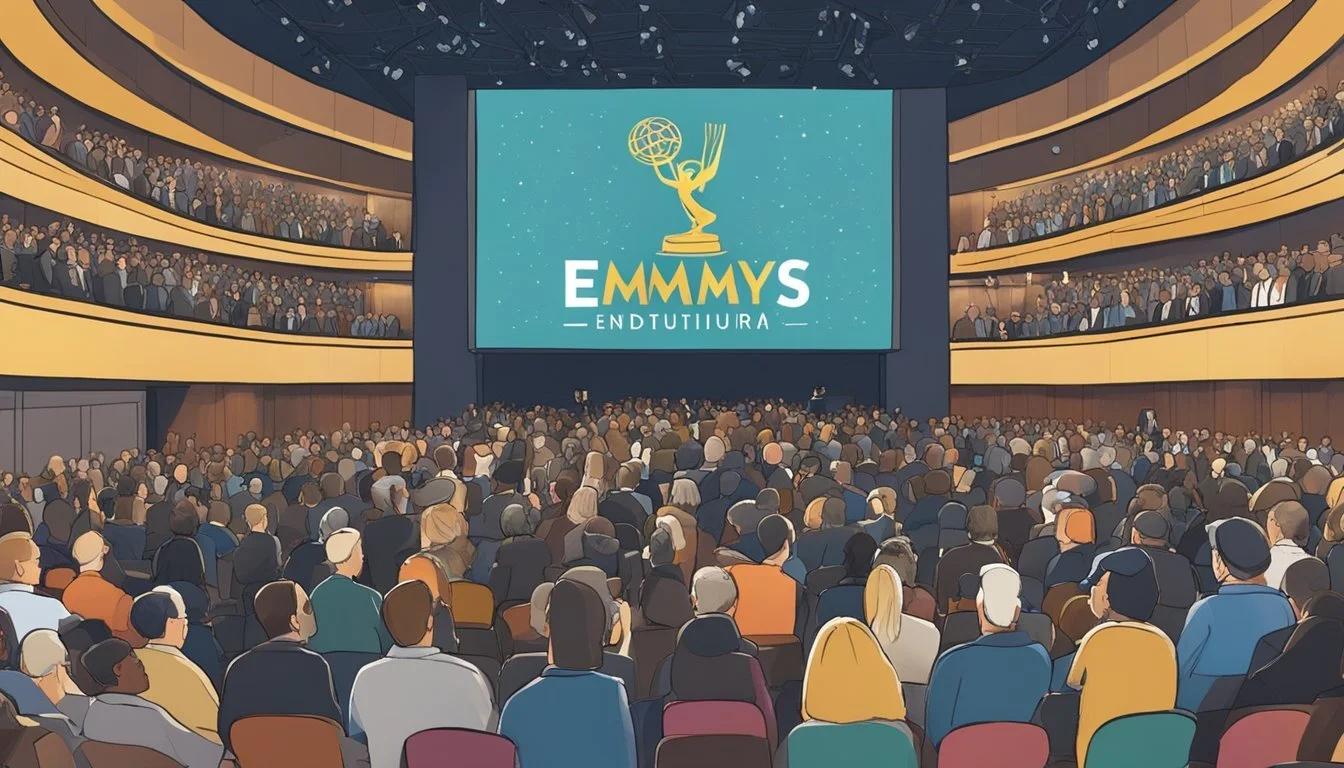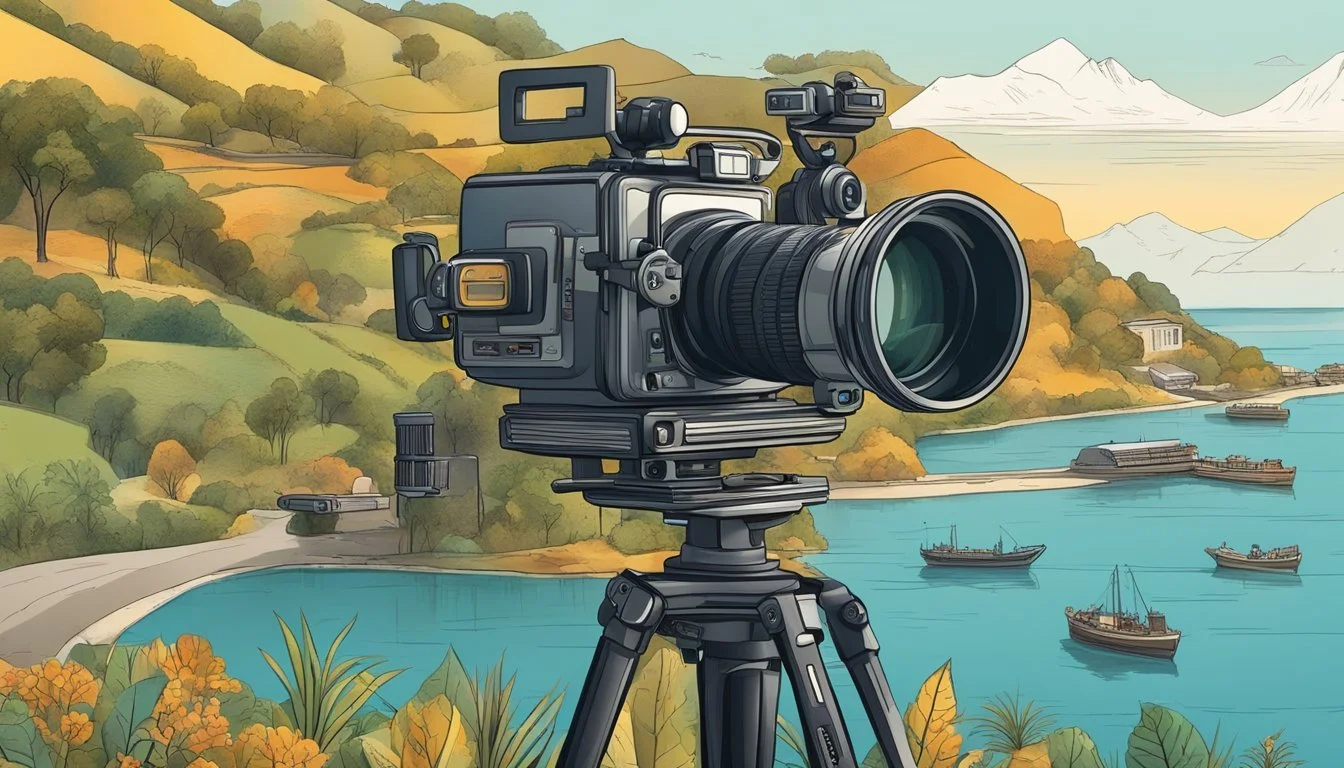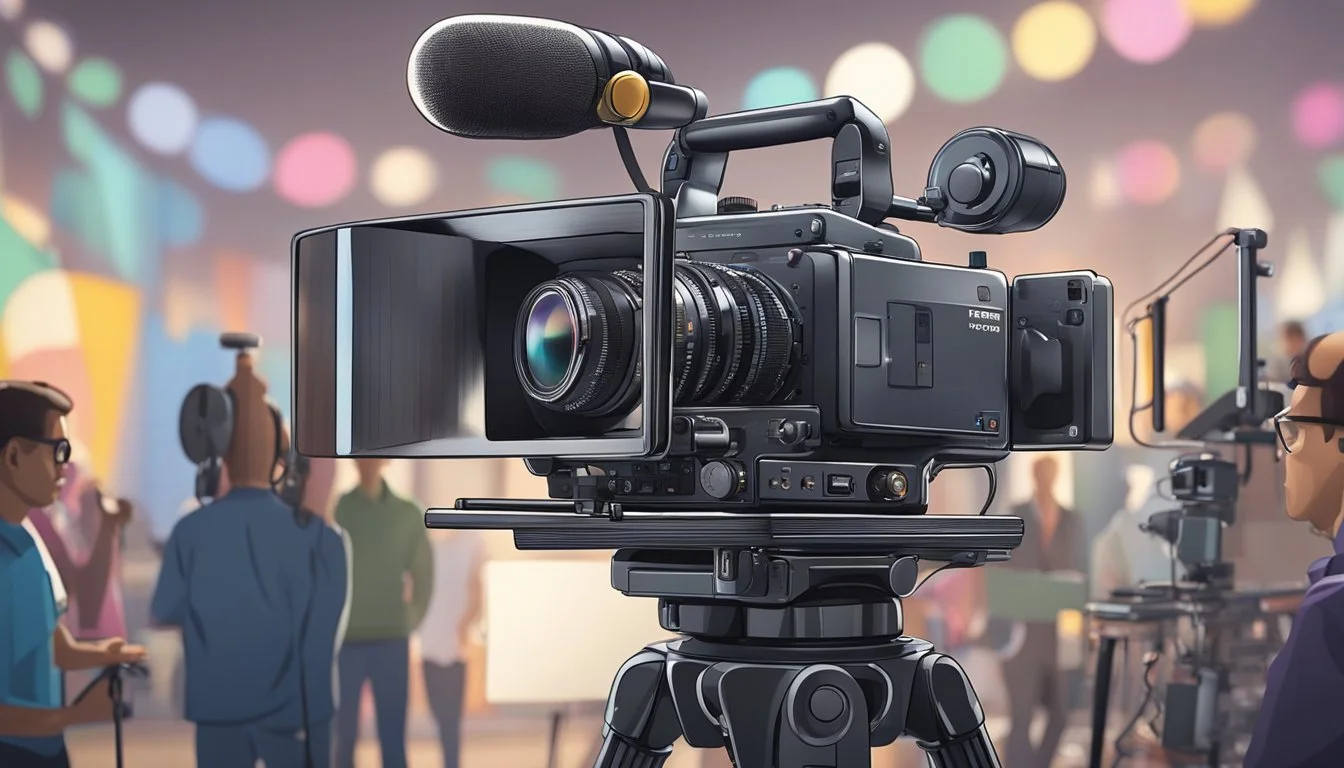Shock and Awe: Documentary Emmys Expose Jaw-Dropping Truths!
The Documentary Emmys celebrate excellence in nonfiction television programming. Presented by the National Academy of Television Arts and Sciences, these prestigious awards honor outstanding achievements in documentary filmmaking and news reporting.
The 45th News & Documentary Emmy Awards took place in September 2024 at the Palladium Times Square in New York City. The event recognized exceptional work in categories such as Outstanding Documentary, Outstanding News Coverage, and Outstanding Investigative Reporting. Nominees and winners included productions from major networks, streaming platforms, and independent filmmakers.
Emmy-winning journalist Jane Pauley received a Lifetime Achievement Award at the ceremony, acknowledging her distinguished career in news broadcasting. The awards were live-streamed, allowing viewers worldwide to witness the recognition of groundbreaking documentaries and impactful journalism that shape public discourse and illuminate important issues.
History and Evolution of the Documentary Emmys
The Documentary Emmys have grown from humble beginnings to become a prestigious recognition of excellence in nonfiction programming. Their categories have expanded over time to reflect the changing landscape of documentary filmmaking and journalism.
Origins of the Emmy Award
The Emmy Awards were established in 1949 by the Television Academy to recognize outstanding achievements in television. Initially focused on entertainment programming, the Emmys gradually expanded to include news and documentary content.
In the 1970s, the National Academy of Television Arts and Sciences (NATAS) began honoring documentaries and news programs with dedicated Emmy categories. This move acknowledged the growing importance of nonfiction storytelling on television.
The Documentary Emmy categories quickly gained prominence, attracting submissions from major networks, public television, and independent producers.
Evolving Categories in Documentary
As documentary filmmaking techniques and subjects diversified, the Emmy Awards adapted their categories to reflect these changes. Early categories focused on traditional long-form documentaries and investigative journalism.
Over time, new categories emerged to recognize emerging formats. These included short-form documentaries, interactive documentaries, and documentary series. Categories for cinematography, editing, and sound design in documentaries were also added.
The Documentary Emmys now cover a wide range of subjects, from current affairs and historical topics to nature and science programming. This evolution ensures that the awards continue to celebrate the full spectrum of nonfiction storytelling on television.
Notable Documentary Winners and Nominees
The Documentary Emmys have recognized outstanding achievements in nonfiction filmmaking. Prestigious awards have gone to both veteran and emerging documentarians, while groundbreaking films and series have pushed the boundaries of the genre.
Prestigious Documentarian Achievements
Sheila Nevins, former president of HBO Documentary Films, has received numerous Emmy awards for her contributions to documentary programming. Barbara Kopple, a two-time Academy Award winner, has also garnered Emmy recognition for her powerful social issue films.
Fisher Stevens won an Emmy for producing the climate change documentary "Before the Flood." Roger Ross Williams became the first African American director to win an Oscar for his short doc "Music by Prudence" and later received Emmy nods for his work.
W. Kamau Bell earned acclaim for his socially conscious CNN series "United Shades of America," winning multiple Emmys for Outstanding Unstructured Reality Program.
Breakthrough Films and Series
"The Jinx: The Life and Deaths of Robert Durst" by Andrew Jarecki won two Emmys and sparked renewed interest in the case, leading to Durst's arrest. Netflix's "Making a Murderer" captivated audiences and won four Emmys, including Outstanding Documentary or Nonfiction Series.
PBS consistently produces Emmy-winning documentaries, with Ken Burns' "The Vietnam War" receiving multiple awards. Nat Geo's "Free Solo" won seven Emmys, including Outstanding Directing for a Documentary/Nonfiction Program.
Vice News has earned recognition for its bold reporting, winning Emmys for "VICE News Tonight" and "VICE on HBO." Newer streaming platforms like Apple TV+ and Paramount+ have also entered the documentary space, competing for Emmy honors with high-quality productions.
Award Categories and Criteria
The Documentary Emmy Awards recognize excellence across a diverse range of categories, setting high standards for filmmaking and journalistic achievement in non-fiction storytelling.
Diversity of Documentary Awards
Outstanding Investigative News Coverage honors in-depth reporting that uncovers significant issues. Outstanding Live News Special recognizes exceptional coverage of breaking events as they unfold. Outstanding Recorded News Special celebrates comprehensive reports on major topics. Outstanding Live News Program and Outstanding Recorded News Program acknowledge overall excellence in daily or weekly news broadcasts. Outstanding Continuing News Coverage rewards sustained reporting on ongoing stories.
Outstanding Soft Feature Story highlights human interest pieces, while Outstanding Hard News Feature Story recognizes impactful reporting on serious topics. Outstanding Emerging Journalist celebrates rising talent in the field.
Standards of Excellence
Emmy judges evaluate entries based on content quality, originality, and impact. Technical proficiency in areas like cinematography, editing, and sound design is also considered. Documentaries must demonstrate journalistic integrity, thorough research, and compelling storytelling.
Innovation in form and presentation can set entries apart. Social relevance and the ability to shed light on important issues are key factors. Judges look for documentaries that inform, engage, and potentially inspire action.
Entries must have aired on American television during the eligibility period and reached a significant portion of the country. This ensures a level playing field and maintains the prestige of the awards.
Impact of News Networks and Platforms
Major news networks and emerging streaming platforms have reshaped the landscape of documentary production and distribution. Their influence extends to content selection, audience reach, and industry recognition.
Mainstream Networks' Influence on Documentaries
CNN, ABC News, and CBS's 60 Minutes have long been powerhouses in documentary journalism. These networks leverage their vast resources and established credibility to produce high-impact documentaries. CNN's original series often tackle pressing global issues, while ABC News excels in investigative reporting. 60 Minutes continues to set the standard for in-depth storytelling.
World News Tonight and Sunday Morning also contribute significantly to the documentary space. Their segments, though shorter, often spark national conversations. The New York Times has expanded its reach through visual storytelling, partnering with streaming services to bring its investigative work to life.
Streaming Services and Their Emergence
Netflix, HBO Max, and Prime Video have revolutionized documentary distribution. These platforms offer filmmakers unprecedented creative freedom and global audiences. Netflix's investment in original documentaries has led to critically acclaimed productions and numerous Emmy nominations.
HBO Max continues HBO's legacy of thought-provoking documentaries, now with increased accessibility. Prime Video has become a formidable player, attracting established directors and emerging talent alike. Vice News Tonight and Scripps News have found new homes on streaming platforms, expanding their reach beyond traditional broadcast.
Streaming services' algorithm-driven recommendations have introduced viewers to diverse documentary content, broadening the genre's appeal and impact.
Prominent Figures in Documentary Filmmaking
Documentary filmmaking has been shaped by visionary directors who have pushed the boundaries of storytelling and shed light on important issues. These filmmakers have earned recognition through prestigious awards like the Emmys, cementing their places in the industry.
Veteran Documentarians and Their Legacy
Alex Gibney stands out as a prolific and acclaimed documentary filmmaker. His work has garnered multiple Emmy nominations and wins, tackling subjects from corporate fraud to political scandals. Barbara Kopple, a two-time Academy Award winner, has made significant contributions to the field with her powerful social issue documentaries.
Sheila Nevins, former president of HBO Documentary Films, has been instrumental in shaping the landscape of documentary television. Her work has earned her numerous Emmy Awards and the Lifetime Achievement Award from the National Academy of Television Arts and Sciences.
The New Guard of Documentary Storytellers
Fisher Stevens has transitioned from acting to become a respected documentary director and producer. His work on environmental issues has earned him critical acclaim and Emmy nominations.
W. Kamau Bell has emerged as a strong voice in documentary television, using humor and insight to explore social issues. His series have received Emmy recognition for their unique approach to difficult topics.
Roger Ross Williams, the first African American director to win an Academy Award for documentary short subject, continues to create impactful films that have also been honored at the Emmys.
Geographical and Cultural Impact on Documentaries
The location where documentaries are produced and the cultures they represent significantly shape their content and reception. These factors influence both the creative process and the stories told.
Influence of Location on Documentary Production
New York City stands as a major hub for documentary filmmaking. Its diverse neighborhoods and iconic landmarks provide rich visual backdrops. The city's cultural institutions, like the Palladium Times Square, often host documentary premieres and industry events.
Urban settings offer filmmakers easy access to subjects and resources. Rural and remote locations, while challenging, can yield unique stories and perspectives. The choice of filming location impacts production costs, crew availability, and logistical considerations.
Cultural Representation and Its Importance
Documentaries play a crucial role in showcasing diverse cultures and perspectives. Nat Geo, known for its global reach, produces films that highlight various cultural practices and traditions worldwide.
Accurate cultural representation in documentaries fosters understanding and empathy. It gives voice to underrepresented communities and challenges stereotypes. Filmmakers must navigate cultural sensitivities and ethical considerations when documenting unfamiliar societies.
Cross-cultural collaborations in documentary production can lead to more nuanced storytelling. They bring together different viewpoints and expertise, resulting in richer, more authentic narratives.
Current Events and Their Reflection in Documentaries
Documentary filmmakers capture unfolding events and ongoing issues, providing in-depth analysis and firsthand perspectives. Their work sheds light on global challenges and conflicts, offering viewers a nuanced understanding of complex situations.
Coverage of Breaking News and Ongoing Issues
The War in Ukraine has been a focal point for documentarians since 2022. Filmmakers have risked their lives to document the conflict's human toll and geopolitical implications. These documentaries offer raw, unfiltered accounts of life in war zones and refugee camps.
The Uvalde school shooting in Texas sparked a wave of documentaries examining gun violence in America. These films explore the aftermath of the tragedy, featuring interviews with survivors, families, and community members. They also delve into broader issues of school safety and gun control policies.
Spotlight on Global Challenges and Conflicts
"Trafficked with Mariana van Zeller" exemplifies how documentaries tackle global issues. The series investigates black markets and criminal networks worldwide, exposing the complexities of international crime.
Climate change documentaries have gained prominence, showcasing the impacts of rising temperatures on ecosystems and communities. These films often blend scientific data with personal stories to illustrate the urgency of environmental action.
Documentaries on social movements like Black Lives Matter and #MeToo continue to emerge, chronicling ongoing struggles for equality and justice. They provide historical context and amplify diverse voices within these movements.
The Role of Unions and Industry Recognition
Unions and industry recognition play crucial roles in shaping the landscape of documentary filmmaking. These entities advocate for fair working conditions and celebrate excellence in the field, impacting both the creation and reception of documentaries.
SAG-AFTRA's Influence on Documentaries
SAG-AFTRA, the Screen Actors Guild-American Federation of Television and Radio Artists, wields significant influence in the documentary world. The union represents many professionals involved in documentary production, including narrators, on-camera talent, and voice actors.
SAG-AFTRA negotiates contracts that ensure fair compensation and working conditions for its members. These agreements often include provisions specific to documentary work, such as minimum rates for narration and on-camera appearances.
The 2023 SAG-AFTRA strike highlighted the union's power to affect production schedules and draw attention to industry issues. While primarily focused on scripted content, the strike's ripple effects touched documentary projects as well.
Awards and Recognition by Peers
Industry recognition, particularly through awards, plays a vital role in elevating documentaries and their creators. The Emmy Awards stand out as a prestigious platform for honoring excellence in documentary filmmaking.
Emmy nominations can significantly boost a documentary's profile, attracting wider audiences and industry attention. Categories like Outstanding Documentary or Nonfiction Special and Outstanding Documentary or Nonfiction Series showcase the breadth of documentary work.
The Television Academy's Lifetime Achievement Award occasionally recognizes documentary filmmakers for their enduring contributions to the field. This honor celebrates careers dedicated to advancing the art and impact of documentary storytelling.
Peer recognition through these awards not only validates the work of individual filmmakers but also helps shape industry standards and aspirations for documentary excellence.
Technological Advancements in Documentary Production
Digital tools and innovative storytelling techniques have revolutionized documentary filmmaking. These advancements have expanded creative possibilities and enhanced the viewer experience.
The Digital Revolution and Its Effects
High-quality digital cameras have made documentary production more accessible and affordable. Filmmakers can now capture stunning footage with compact equipment, enabling them to work in challenging environments. Editing software allows for seamless post-production, giving directors greater control over their narratives.
Streaming platforms like Netflix, Apple TV+, and HBO Max have created new distribution channels for documentaries. This has led to increased funding and exposure for niche subjects that may not have found audiences through traditional broadcast methods.
PBS has embraced digital technologies to enhance its documentary offerings. The network now provides interactive web experiences to complement its films, allowing viewers to explore topics in greater depth.
Innovations in Storytelling Techniques
Virtual reality (VR) and augmented reality (AR) are pushing the boundaries of documentary storytelling. These technologies immerse viewers in the subject matter, creating powerful emotional connections.
Non-linear narratives have gained popularity, allowing audiences to choose their own paths through documentaries. This interactive approach engages viewers in new ways and can provide multiple perspectives on complex issues.
Data visualization techniques have become sophisticated tools for explaining complex concepts. Documentarians use animated infographics and 3D models to make abstract ideas more accessible and visually compelling.
Future Trends in Documentary Filmmaking
Documentary filmmaking continues to evolve rapidly, embracing new technologies and storytelling techniques. The genre is poised for significant changes in the coming years, adapting to viewer preferences and emerging styles.
Predictions for Emerging Documentary Styles
Virtual reality (VR) and augmented reality (AR) are set to revolutionize documentary storytelling. These immersive technologies will allow viewers to experience environments and events firsthand, creating a deeper emotional connection to the subject matter.
Interactive documentaries are gaining traction, allowing audiences to choose their own paths through the narrative. This format engages viewers more actively and provides multiple perspectives on complex issues.
Micro-documentaries optimized for social media platforms are becoming increasingly popular. These bite-sized films, typically under five minutes, cater to shorter attention spans and mobile viewing habits.
Adapting to Changing Viewer Preferences
Streaming platforms are investing heavily in nonfiction content, leading to a rise in high-quality, serialized documentary series. These multi-episode formats allow for more in-depth exploration of topics and greater audience engagement.
Hybrid documentaries, blending fact and fiction, are pushing the boundaries of traditional nonfiction storytelling. This innovative approach can make complex or historical subjects more accessible to wider audiences.
User-generated content is being incorporated into professional documentaries, providing authentic, diverse perspectives. This trend democratizes storytelling and allows for more immediate, on-the-ground reporting of events.










